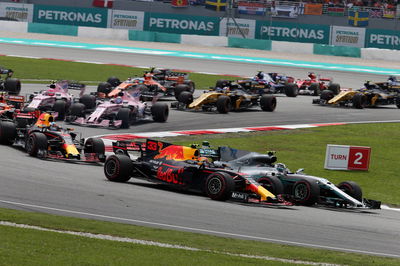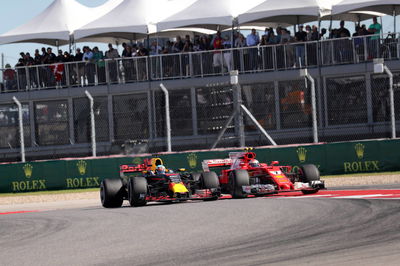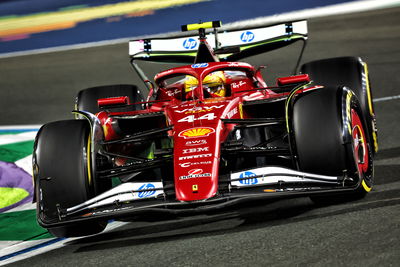FIA confirms 2018 F1 calendar, timetable shake-up, grid penalty changes
The FIA World Motor Sport Council has announced a raft of changes set to hit Formula 1 in 2018 from the ability to change the event timetable to a reshaping of the engine grid penalty rules.
Along with the final confirmation of the 2018 F1 World Championship calendar, a number of tweaks to the sporting and technical regulations has been produced during the final meeting this year of the governing body held in Paris.

The FIA World Motor Sport Council has announced a raft of changes set to hit Formula 1 in 2018 from the ability to change the event timetable to a reshaping of the engine grid penalty rules.
Along with the final confirmation of the 2018 F1 World Championship calendar, a number of tweaks to the sporting and technical regulations has been produced during the final meeting this year of the governing body held in Paris.
Headline changes include giving permission for tweaks to the F1 race weekend timetable to “increase flexibility” which could signal a shake-up of when sessions are run with new owners Liberty Media looking to step up track action for fans.
No initial timetable changes have been confirmed but it is likely to be adjusted on a race-by-race basis given the different schedules already used due to night races and flyaway races to suit European TV times.
Following the success of F1 LIVE in London’s Trafalgar Square as build up to the British Grand Prix, demonstration events in old F1 cars have been granted outside of testing rules but limited to 50km in length and only with tyres especially made for each demonstration.
Engine grid drop penalties have also been adjusted with any driver exceeding 15 grid places in a penalty will start from the back of the grid. If more than one driver exceeds the 15 grid places the back of the grid will be sorted by which order the offences were committed.
Technical regulation changes have confirmed the banning of oil burning as fuel with a “detailed specification for oil” release by the FIA for 2018.
2018 F1 race calendar:
25 March Australia Melbourne
08 April Bahrain Bahrain
15 April China Shanghai
29 April Azerbaijan Baku
13 May Spain Barcelona
27 May Monaco Monte Carlo
10 June Canada Montreal
24 June France Le Castellet
01 July Austria Spielberg
08 July United Kingdom Silverstone
22 July Germany Hockenheim
29 July Hungary Budapest
26 August Belgium Spa-Francorchamps
02 September Italy Monza
16 September Singapore Singapore
30 September Russia Sochi
07 October Japan Suzuka
21 October USA Austin*
28 October Mexico Mexico City
11 November Brazil Sao Paolo
25 November United Arab Emirates Abu Dhabi
*Subject to ASN approval
Full list on changes to the 2018 Formula 1 sporting and technical regulations produced by the FIA:
- Regulations relating to procedures for starting or resuming a race behind the safety car
- Changing the event timetable to increase flexibility
- Ensuring that testing of previous cars may only take place on tracks currently holding an FIA Grade 1 or 1T licence
- Provision for demonstration events in previous cars which does not constitute testing. No such demonstrations may exceed 50km in length and only tyres manufactured specifically for this purpose by the appointed supplier may be used
- Changes to ensure that oil cannot be used as fuel
- Introduction of a detailed specification for oil
- A minimum weight and volume for energy storage (batteries)
- Changes to position of cameras and wing mirrors to accommodate the Halo
- A change to the power unit penalty system was also approved, whereby if a driver incurs a penalty exceeding 15 grid places he will be required to start the race from the back of the starting grid. If more than one driver receives such a penalty they will be arranged at the back of the grid in the order in which the offences were committed.
- The World Council was presented with the report on the security incidents that occurred at this year’s Brazilian Grand Prix which was requested from the Commercial Rights Holder (CRH) by the FIA. Following the report, the CRH recommended that the promoter, who is responsible for the security of the event, retains an independent security expert to evaluate and advise on security plans, implements a police reporting hub at the circuit and improves overall communication between the promoter security, police and F1 stakeholders. The World Council strongly urged the promoter to implement these recommendations and improve the situation ahead of next year’s event. The FIA will offer to participate in discussions with the local authorities and closely monitor the situation.











